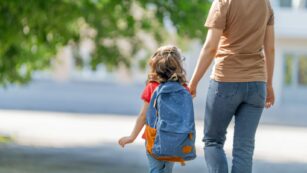In a world where helicopter parenting and constant supervision dominate, free-range parenting emerges as a contrasting approach that encourages independence and self-reliance in children. This parenting style, which allows kids more freedom to explore their surroundings with less adult intervention, has sparked a heated debate among parents, educators, and psychologists. Supporters argue it fosters resilience and problem-solving skills, while critics worry about potential safety risks and neglect.
The question of whether free-range parenting is safe isn’t just about physical safety but also involves emotional and developmental aspects. As society grapples with balancing protection and independence, understanding the nuances of this parenting style becomes essential. By examining the benefits and potential drawbacks, parents can make informed decisions about how much freedom to grant their children. This exploration of free-range parenting’s safety aims to shed light on its impact on children’s growth and well-being, offering insights for those considering this approach.
Is Free Range Parenting Safe
 Evaluating the safety of free-range parenting involves considering various factors which include the child’s maturity, the environment, and community resources. Advocates argue that fostering independence equips children with essential life skills. Research indicates that children with more autonomy often exhibit enhanced problem-solving abilities and resilience. Critics, however, point to potential safety risks, highlighting concerns about unsupervised environments, which might lead to physical harm or emotional vulnerability.
Evaluating the safety of free-range parenting involves considering various factors which include the child’s maturity, the environment, and community resources. Advocates argue that fostering independence equips children with essential life skills. Research indicates that children with more autonomy often exhibit enhanced problem-solving abilities and resilience. Critics, however, point to potential safety risks, highlighting concerns about unsupervised environments, which might lead to physical harm or emotional vulnerability.
The balance between freedom and safety is key. Parents can mitigate risks by ensuring children have age-appropriate tasks and are aware of safety rules. Structured environments where children gradually gain responsibility can increase parental comfort while promoting child safety. Supportive community infrastructure, like safe parks or neighborhood watches, also plays a crucial role. Engaging in these practices may help integrate free-range principles with safety assurances.
Benefits of Free Range Parenting
Encouraging Independence & Building Confidence in Children
 Free range parenting allows children to make choices, enhancing their decision-making abilities. By navigating their environment with minimal adult intervention, children learn to solve problems independently. This autonomy aids in developing critical thinking skills, which are essential for personal growth. A 2015 study published in the Journal of Personality and Social Psychology found that children with higher levels of autonomy often displayed superior cognitive development.
Free range parenting allows children to make choices, enhancing their decision-making abilities. By navigating their environment with minimal adult intervention, children learn to solve problems independently. This autonomy aids in developing critical thinking skills, which are essential for personal growth. A 2015 study published in the Journal of Personality and Social Psychology found that children with higher levels of autonomy often displayed superior cognitive development.
Allowing children to explore and take manageable risks boosts their self-esteem. Facing challenges independently teaches resilience and adaptability, which contribute to a child’s confidence in their capabilities. A report from the American Academy of Pediatrics highlights that children who engage in unstructured play exhibit increased confidence levels. This self-assurance translates into better social interactions and a positive self-image.
Concerns About Safety
Risk of Accidents and Societal Perceptions
 Children exploring their environment freely might encounter physical hazards. Unsupervised play increases the chance of injuries, such as falls or scrapes. According to the Centers for Disease Control and Prevention (CDC), falls are the leading cause of non-fatal injuries in children under 14. By assessing the environment and ensuring safe play spaces, parents can address potential risks.
Children exploring their environment freely might encounter physical hazards. Unsupervised play increases the chance of injuries, such as falls or scrapes. According to the Centers for Disease Control and Prevention (CDC), falls are the leading cause of non-fatal injuries in children under 14. By assessing the environment and ensuring safe play spaces, parents can address potential risks.
Societal norms influence opinions on free-range parenting. Many people expect parental supervision at all times, leading to misunderstandings or judgments about this approach. A survey by the C.S. Mott Children’s Hospital National Poll on Children’s Health found that 43% of respondents judged parents for allowing unsupervised play. Effective communication with neighbors and a clear understanding of local child welfare laws can mitigate these perceptions.
Balancing Freedom and Safety
Free-range parenting presents a nuanced approach to raising independent and resilient children. While it encourages autonomy and confidence, it’s crucial for parents to weigh the potential risks and benefits carefully. Understanding the child’s maturity level, assessing the environment, and staying informed about local laws can help in creating a safe framework for this parenting style. Effective communication with the community and thoughtful planning can mitigate concerns and enhance the positive aspects of free-range parenting. By balancing freedom with safety, parents can foster an environment where children thrive both emotionally and developmentally.

